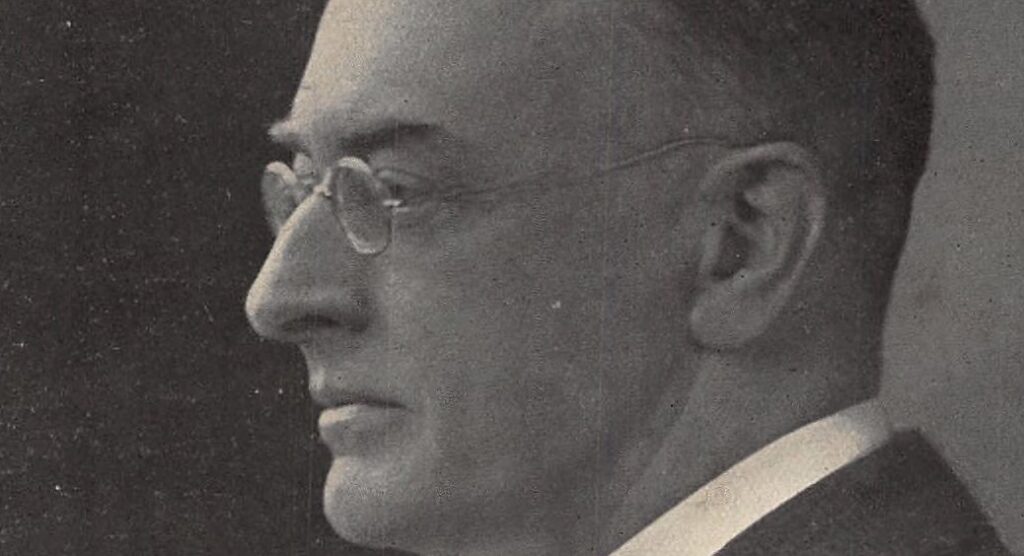J Arthur Hill (1872–1951) was an English author of books on psychical research and Spiritualism.
Contents
Life and Career
John Arthur Hill was born in Halifax, England, on 4 December 1872. He studied at the Thornton Grammar School in Bradford, then worked as a business manager until 1898. Obliged by ill-health to cut back his professional activities, he read extensively on psychical research, notably books and papers by William Crookes, Oliver Lodge, FWH Myers and Richard Hodgson.
Hill joined the Society for Psychical Research and was member of its governing council between 1927 and 1935. He chronicled researches on telepathy, clairvoyance, mediumship, survival of death, and other subjects, publishing several books, along with reports of his own investigations. His contributions as a historian of the spiritualist movement and the progress of scientific parapsychology were generally well received, especially the 1918 volume Spiritualism: Its History, Phenomena and Doctrine.1Pleasants (1964), 139; Hill (1918).
Hill compiled and annotated an edition of Oliver Lodge’s personal and professional correspondence.2Lodge (1932). He was also a devoted scholar of the American essayist Ralph Waldo Emerson.
Views on Psychical Research
Hill was impressed by the experimental researcg carried out by SPR members, and their logical treatment of the evidence. He became convinced of the reality of telepathy, psychometry, clairvoyance, and other unusual phenomena unrecognized by the science of his day. He believed they could be due to subliminal powers of living people, although some might indicate the agency of discarnate human beings.
Personal experience, he thought, is necessary to attain real convictions regarding these matters, a point of view that owed much to Myers, whose pioneering work he always praised.3Hill (1919a), ix-x. Researchers in this new field had to ‘invent the technique of the inquiry’ and ‘learn its application’. He sat with several clairvoyants and mediums, notably Aaron Wilkinson, with whom he developed the methodological approaches that he recommended in his texts.
By 1930 he was inclined to think that ‘we are perhaps doing more useful work by grubbing along at telepathy’ and like subjects
which do not too much shock the orthodox scientific man, than by arguing for spiritualistic interpretations or by having sittings for materialisation. These things may put off some minds which would at least tolerate the less startling phenomena. Science wants to link up the unknown with the known, and it is perhaps well to avoid jumps into very far countries’.4Hill (1930), 3.
He felt that the question of survival and a future state was ‘urgent and abiding’ for psychical research, especially in the aftermath of World War I,5Hill (1919a), 31; Hill (1917a), ch. 2. and that the accumulated evidence was ‘sufficient to justify belief’ in such things.6Hill (1919a), vi-vii; Hill (1927), 8.
Selected Works on Psychical Research
Articles
The evolution of a psychical researcher (1918). Occult Review 28 (July-December), 25-31.
1927. Personal experiences and opinions (1927). Psychic Science 7/1, 7-16.
The present position on psychical research (1930). Psychic Science 9/1, 2-10.
Books
New Evidences in Psychical Research (1911). London: William Rider & Son. [Introduction by Oliver Lodge.]
The Hope of Immortality – Is it Reasonable? In What Happens After Death? A Symposium by Leading Writers and Thinkers (1916). New York: Funk & Wagnalls Company.
Psychical Investigations (1917). New York: Doran.
Psychical Miscellanea (1917). New York: Harcourt, Brace & Howe.
Spiritualism: Its History, Phenomena and Doctrine (1919). New York: Doran. [Introduction by Arthur Conan Doyle.]
Spiritualism and Psychical Research (1919). London: T. C. & E. C. Jack.
1929. Psychical Science and Religious Belief (1929). London: Rider & Company.
Roberto R Narvaez
Literature
Lodge, O. (1932). Letters from Sir Oliver Lodge. Psychical, Religious, Scientific, and Personal. Compiled and Annotated by J. Arthur Hill. London: Cassell and Company, Ltd. [Foreword by Oliver Lodge.]
Pleasants, H. (ed.). (1964). Biographical Dictionary of Parapsychology with Directory and Glossary. 1964–1966. New York: Helix Press.
